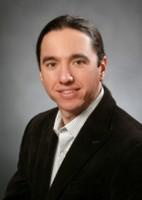- Speaker
- Prof. Marcos Rigol
- The Pennsylvania State University, USA
- Abstract
Recently, experiments with ultracold gases have made it possible to study dynamics of (nearly) isolated many-body quantum systems. This has revived theoretical interest on this subject. In generic isolated systems, one expects nonequilibrium dynamics to result in thermalization: a relaxation to states where the values of macroscopic quantities are stationary, universal with respect to widely differing initial conditions, and predictable through the time-tested recipe of statistical mechanics. However, it is not obvious what feature of a many-body system makes quantum thermalization possible, in a sense analogous to that in which dynamical chaos makes classical thermalization possible. Underscoring that new rules could apply in the quantum case, experimental studies in one-dimensional systems have shown that statistical mechanics can provide wrong predictions for the outcomes of relaxation dynamics. Analyzing specific examples, we argue that generic isolated quantum systems do in fact relax to states in which observables are well-described by statistical mechanical [1,2]. Moreover, we show that time evolution itself plays a merely auxiliary role as thermalization happens at the level of individual eigenstates. We also discuss what happens at integrability, where a different set of rules apply [3,4].
References:
1. M. Rigol, V. Dunjko, and M. Olshanii. Thermalization and its mechanism for generic isolated quantum systems. Nature 452, 854 (2008).
2. M. Rigol, Quantum Quenches in the Thermodynamic Limit, Phys. Rev. Lett. 112, 170601 (2014).
3. M. Rigol, V. Dunjko, V. Yurovsky, and M. Olshanii. Relaxation in a Completely Integrable Many-Body Quantum System: An Ab Initio Study of the Dynamics of the Highly Excited States of 1D Lattice Hard-Core Bosons. Phys. Rev. Lett. 98, 050405 (2007).
4. M. Rigol, Fundamental Asymmetry in Quenches Between Integrable and Nonintegrable Systems, Phys. Rev. Lett. 116, 100601 (2016).
- About the Speaker
The speaker is a Professor at The Pennsylvania State University. His research interest is in many-body quantum systems in and out of equilibrium, with a focus on systems whose constituents interact strongly. Strong interactions play an important role in materials with intriguing properties, such as high-Tc superconductors, and in ultracold atomic gases in optical lattices. He utilizes theoretical approaches that combine computational and analytical tools. Far from equilibrium, he is interested in understanding how unitary quantum dynamics leads to equilibration and thermalization.
- Date&Time
- 2016-08-19 3:00 PM
- Location
- Room: A303 Meeting Room




